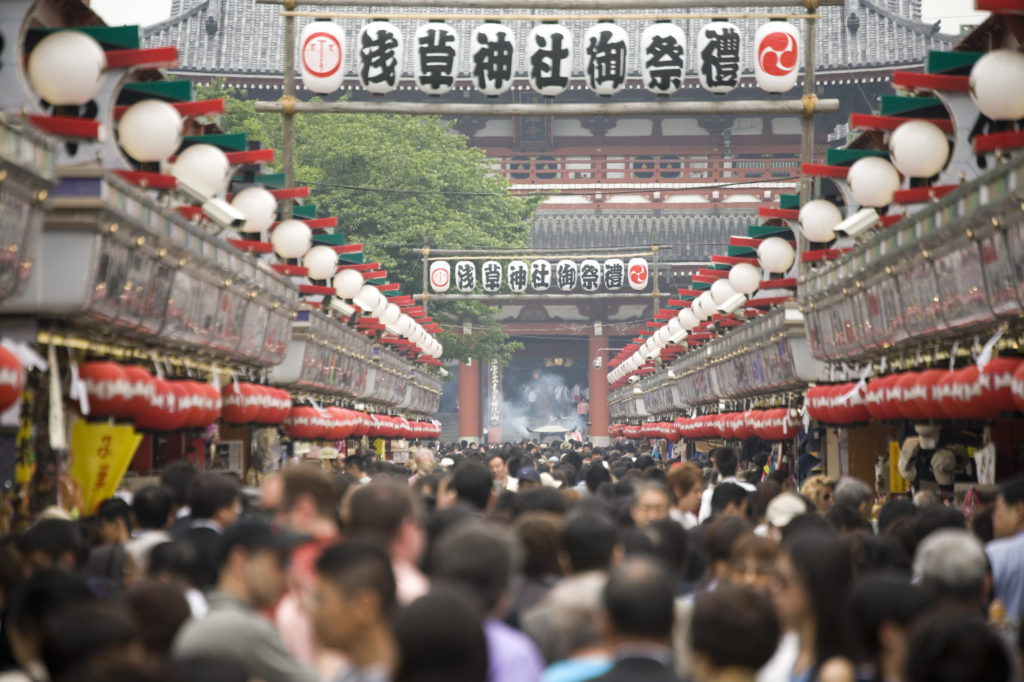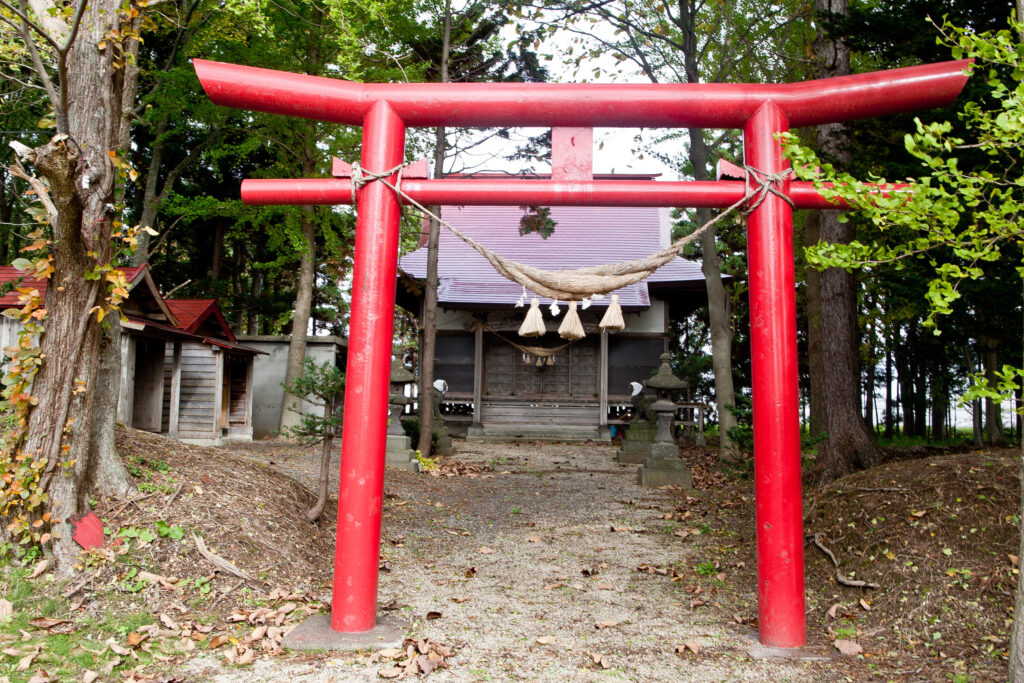In the middle of old habits
Mr Big Bell, a Japanese man, wrote, ‘My family worshipped at the Buddhist family altar, prayed at the Shinto god-shelf. For New Year it was the Shinto shrine, for funerals it was the Buddhist temple. From a young age I was sat down and recited Buddhist scriptures that I did not understand. But even though the meaning was unclear, there was no one to teach me. It was boring and unpleasant. I wondered what use it could be. Religion was a far away thing.’
Later on in time he said, ‘Religion is a matter of personal freedom. It is something I don’t need. I don’t have bad thoughts about stealing. I don’t need to rely on anything special to live. If I have my family, I’m happy.’1
Millions like Mr Big Bell
Japan with a population of about 127 million and only about 1% of those having any Christian connection, has many, many people, male and female, old and young on the same path as Mr Big Bell.
They grow up in an affluent, comfortable society with all that they need; schools, hospitals and railways are good. They have religions which have been passed down the centuries, which they can take part in with as much enthusiasm as they desire. They have a strong sense of being Japanese and value being part of this ‘successful’ nation and culture.
Don’t change things
A Japanese pastor wrote this a few years ago; ‘Japanese people have the feeling that “If you don’t change things, if you just carry on living like everyone else, there will be no trouble.”’2
There seems to be a fairly narrow band of behaviour which is acceptable to other Japanese people. Go outside these limits and other Japanese will say things like, ‘They didn’t show respect to their parents.’ Or, it might be the cause of bad luck or even a curse.
As a Christian, if you don’t take part in, say, offering incense at a family funeral, you distance yourself from the deceased and your family. Do you want to do that?
Don’t decide things just by yourself
Japanese people are raised to consider the group more important than the individual. It is hard-wired into them through all of their years growing up in Japan. So, they do what the group wants, not what they may want. To go your own way, to decide something for yourself just isn’t possible – since your whole family will be held responsible for your strange behaviour. Becoming a Christian is seen by many as denying your family, or even your very nationality.3
Little knowledge of Jesus
A survey some years ago found that between 70-50% of people did not know enough about Christianity to even express an opinion about Christianity.4 Nothing has really changed since then.
Personally, I well remember telling the Christmas story to half a dozen or so 9-10 year old boys at a private tutoring school that I helped. None of them had heard the story before. Not one.
Despite the efforts of missionaries and national believers over many years, there is still little knowledge of Jesus and the Bible is seen as a complicated book. There is still much work to be done in Japan.
Different thought patterns
Imagine you wanted to learn about Japanese Buddhism. You would have to learn a whole new set of concepts and patterns of thinking. What is a Bodhisattva? Which scripture or sutra should I read? What are differences between all the different groups or sects? Who was Amida Buddha? It is all very unfamiliar. It would be the same with learning about Shintoism or one of the New Religions that have sprung up in Japan since World War II.
What if a Japanese person who knew some basic answers to the above questions about Buddhism wanted to learn about Christianity? They would have to get their heads around the difference between the Old and New Testaments. What is prophecy? Different churches; Reformed? Baptist? Anglican? Huh? Who was Jesus Christ? It would all be very unfamiliar and brain-stretching.
That’s why every book or article on understanding  Japanese thinking and religion is welcomed so that the saving message of Jesus Christ can be shared effectively in Japan.
Japanese thinking and religion is welcomed so that the saving message of Jesus Christ can be shared effectively in Japan.
Japanese Understanding of Salvation
To buy Japanese Understanding of Salvation: Soteriology in the Context of Japanese Animism for yourself or to send a copy to someone you know ministering in Japan, click here.
[1] Author’s translation of ‘The Door of my Heart was continually knocked on’ in JECA (Japan Evangelical Church Association) Form No 62 December 2004 pages 12-13.
[2] Author’s translation of a Résumé of the presentation given by the West Study Group of the Evangelical Theological Society in 2013 by Pastor I. Miyatani ‘The Main Points for the Strategic Evangelisation of Buddhism’ page 1.
[3] ‘Why taking a stand for Christ isn’t easy in Japan.’ S. Schnabel East Asia Millions July-September 1993.
[4] ‘Spreading the Gospel in Japan: Severe Challenges, but Exciting Opportunities’ G. Gallup Jr. Japan Harvest Spring 2006 page 17.
Kind thanks go to Peter Dallman for writing this article. Peter is a missionary in Japan with OMF International and is their Training and Development Coordinator, helping missionaries to effectively share Christ.
Photographs kindly provided by OMF International.


